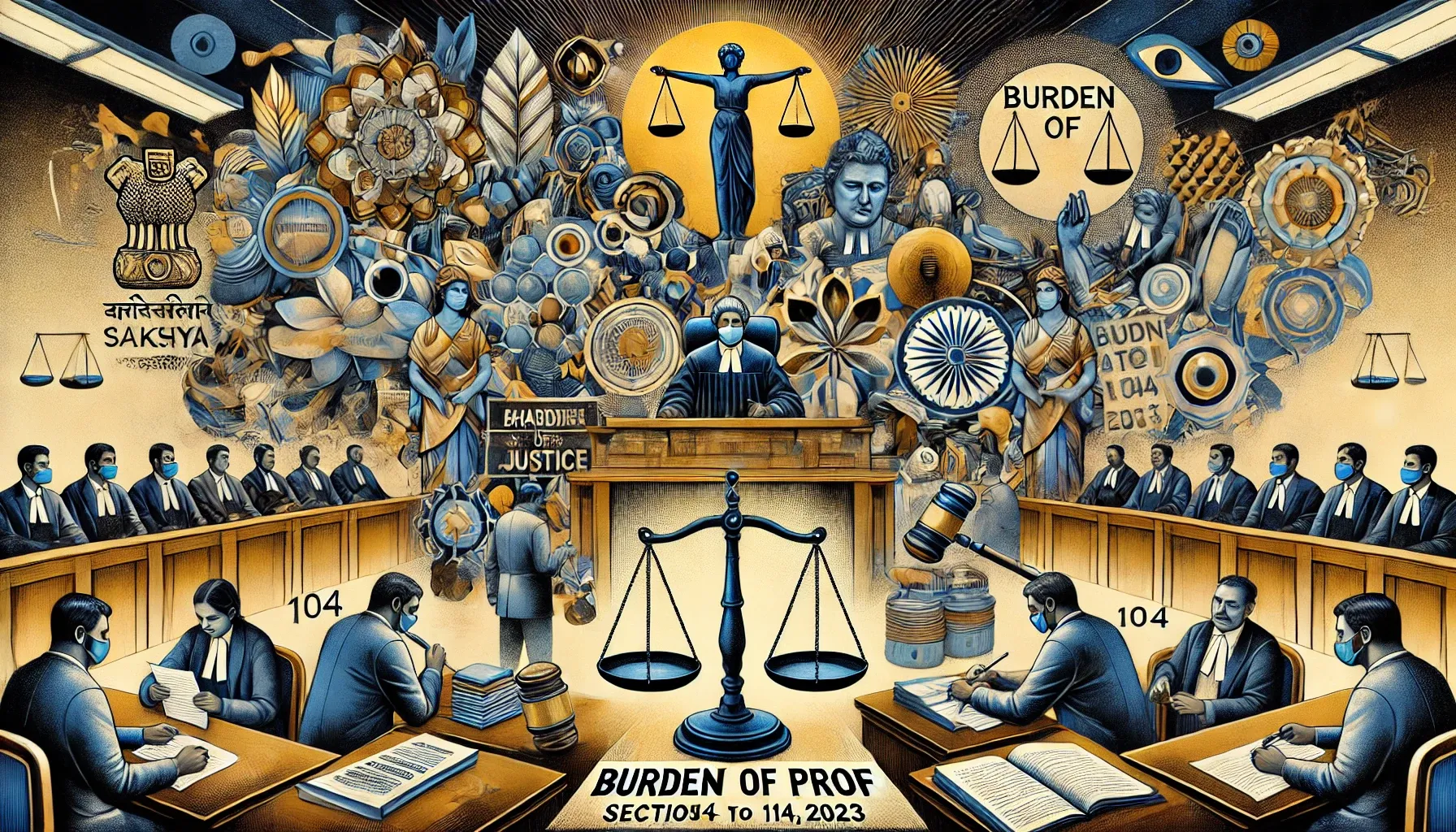
lex-o-pedia
What is the Burden of Proof under the Bharatiya Sakshya Adhiniyam (BSA), 2023?
The Burden of Proof under the Bharatiya Sakshya Adhiniyam (BSA), 2023 places the responsibility on the party asserting a fact to provide evidence supporting it. Sections 104-114 govern this obligation, ensuring fairness in legal proceedings by preventing baseless claims.

lex-o-pedia
What is the Burden of Proof under the Bharatiya Sakshya Adhiniyam (BSA), 2023?
The Burden of Proof under the Bharatiya Sakshya Adhiniyam (BSA), 2023 places the responsibility on the party asserting a fact to provide evidence supporting it. Sections 104-114 govern this obligation, ensuring fairness in legal proceedings by preventing baseless claims.
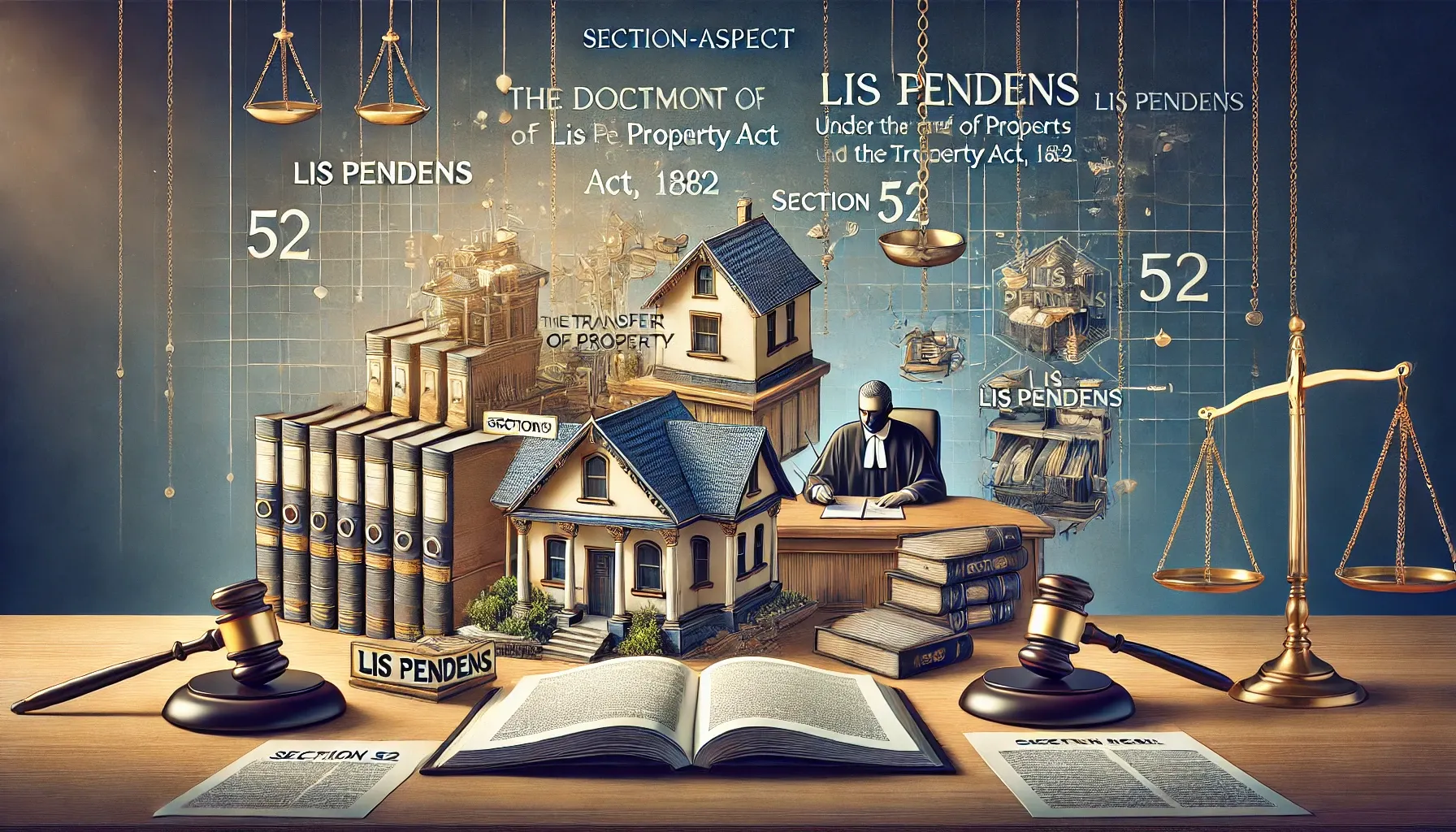
lex-o-pedia
लिस पेंडेंस का सिद्धांत क्या है? (What is the Principle of Lis Pendens?)
स्थानांतरण संपत्ति अधिनियम, 1882 की धारा 52 के तहत लिस पेंडेंस का सिद्धांत यह सुनिश्चित करता है कि लंबित न्यायिक विवाद में शामिल किसी संपत्ति का हस्तांतरण न हो, जिससे न्यायिक परिणामों की सुरक्षा हो और तीसरे पक्ष के अधिकारों का हस्तक्षेप न हो।

lex-o-pedia
What are the Key Features of a Contract of Indemnity and a Contract of Guarantee?
A contract of indemnity involves one party promising to compensate another for losses caused by their own or a third party’s actions. In contrast, a contract of guarantee involves a third party (the surety) ensuring the debtor's obligations are fulfilled.

lex-o-pedia
From Sweat of the Brow to Creativity: What Constitutes “Originality” Under Copyright Law?
Originality is fundamental to copyright law, ensuring protection for creative works. Courts assess originality through various tests, such as the "sweat of the brow" doctrine, the "modicum of creativity" test, and the "skill and judgment" test, balancing effort and creativity.

lex-o-pedia
How is Copyright Registered and Protected in India: A Step-by-Step Guide?
Copyright protects creators' original works, granting exclusive rights over reproduction, distribution, and public performance. In India, registration under the Copyright Act, 1957 ensures legal protection, ownership, and opportunities for revenue generation.
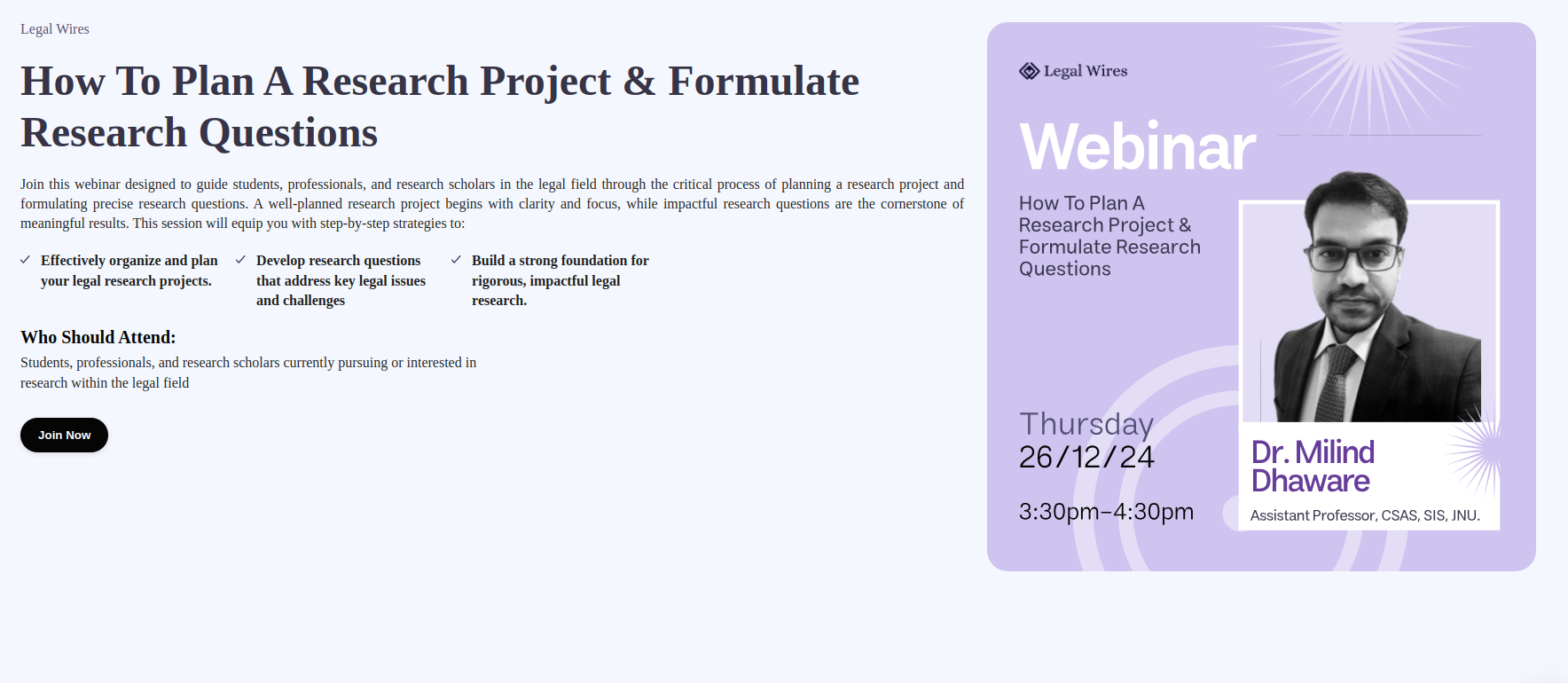
lex-o-pedia
What are the frameworks for planning and conducting research in Research Design?
Research design is the blueprint for planning and conducting studies, ensuring clear objectives, reliable methodologies, and valid data. It aids in clarifying research questions, guiding methodologies, ensuring ethical considerations, and enhancing credibility.

lex-o-pedia
संपत्ति हस्तांतरण अधिनियम की धारा 41 प्रत्यक्ष हस्तांतरण को किस प्रकार प्रभावित करती है?
संपत्ति हस्तांतरण अधिनियम, 1882 की धारा 41 प्रत्यक्ष स्वामी के सिद्धांत को स्थापित करती है। यह निर्दोष खरीदारों को सुरक्षा प्रदान करती है, बशर्ते उन्होंने उचित सावधानी बरती हो और हस्तांतरण सप्रतिफल हो। इससे संपत्ति लेन-देन में स्थिरता आती है।

lex-o-pedia
What are the Legal Remedies for Copyright Infringement, from Piracy to Penalties?
Copyright infringement occurs when a copyrighted work is used without authorization, violating the owner's exclusive rights. Remedies under the Copyright Act, 1957 include civil, criminal, and administrative measures, ensuring robust legal protection for creators.
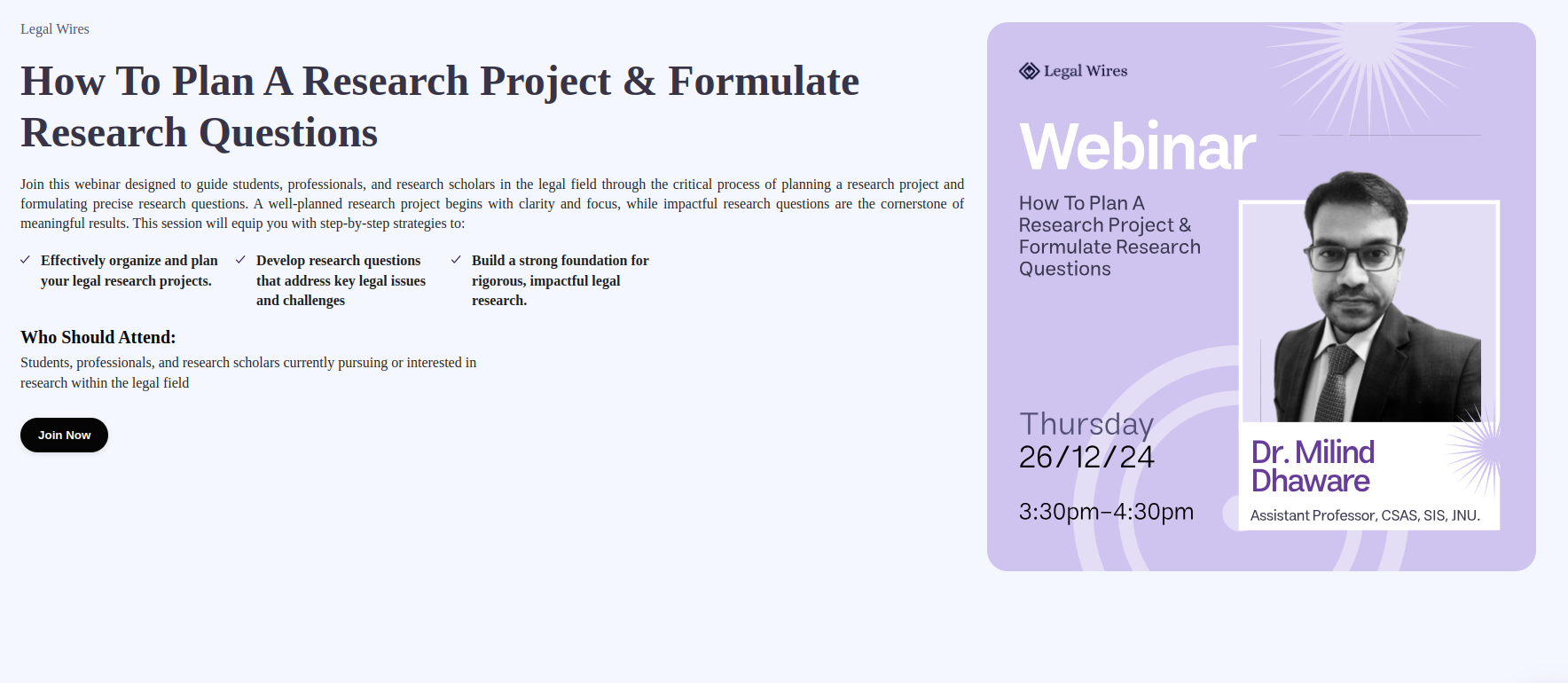
lex-o-pedia
How can a research problem be formulated, and what steps are involved in identifying and refining research questions?
Formulating a research problem involves identifying a specific issue, analyzing gaps in knowledge, and defining objectives. A good research problem is clear, researchable, significant, and feasible, serving as the foundation for systematic inquiry.

lex-o-pedia
क्या संपत्ति हस्तांतरण अधिनियम के अंतर्गत कपटपूर्ण अंतरण (Fraudulent Transfer) को मान्यता दी जाती है?
संपत्ति हस्तांतरण अधिनियम, 1882 की धारा 53 के तहत यदि हस्तांतरण लेनदारों को धोखा देने या उनके दावे विफल करने के उद्देश्य से किया गया हो, तो यह शून्यकरणीय होगा। सद्भावनापूर्वक और प्रतिफल के लिए किए गए हस्तांतरण इस नियम से अपवाद हैं।

lex-o-pedia
What is the Lifespan of Creativity: How does Ownership and Duration Operate under Copyright Law?
Copyright law safeguards creators' rights but raises complexities in ownership and duration. Ownership varies with authorship, work-for-hire, or licensing. Duration ensures protection for 60 years post-creation or an author's life, balancing rights and public access.

lex-o-pedia
What is Novation of Contract?
Novation, under Section 62 of the Indian Contract Act, 1872, allows the substitution of an existing contract with a new one, either by altering terms or replacing parties. It discharges the original contract, creating fresh obligations through mutual consent of all parties involved.

lex-o-pedia
How Does the Doctrine of Fair Use Foster Creativity While Protecting Copyright?
The doctrine of fair use balances copyright protection with public interest, enabling transformative uses like criticism, education, and parody. Both U.S. and Indian frameworks ensure creativity thrives while safeguarding creators’ rights against market harm.

lex-o-pedia
What is hurt, grievous hurt, and its aggravated forms under criminal law?
The concepts of "Hurt" and "Grievous Hurt," defined under Sections 319 and 320 IPC (now Sections 114 and 116 of BNS, 2024), differ in severity. Hurt involves bodily pain or infirmity, while grievous hurt includes serious injuries like emasculation, fractures, or life endangerment.
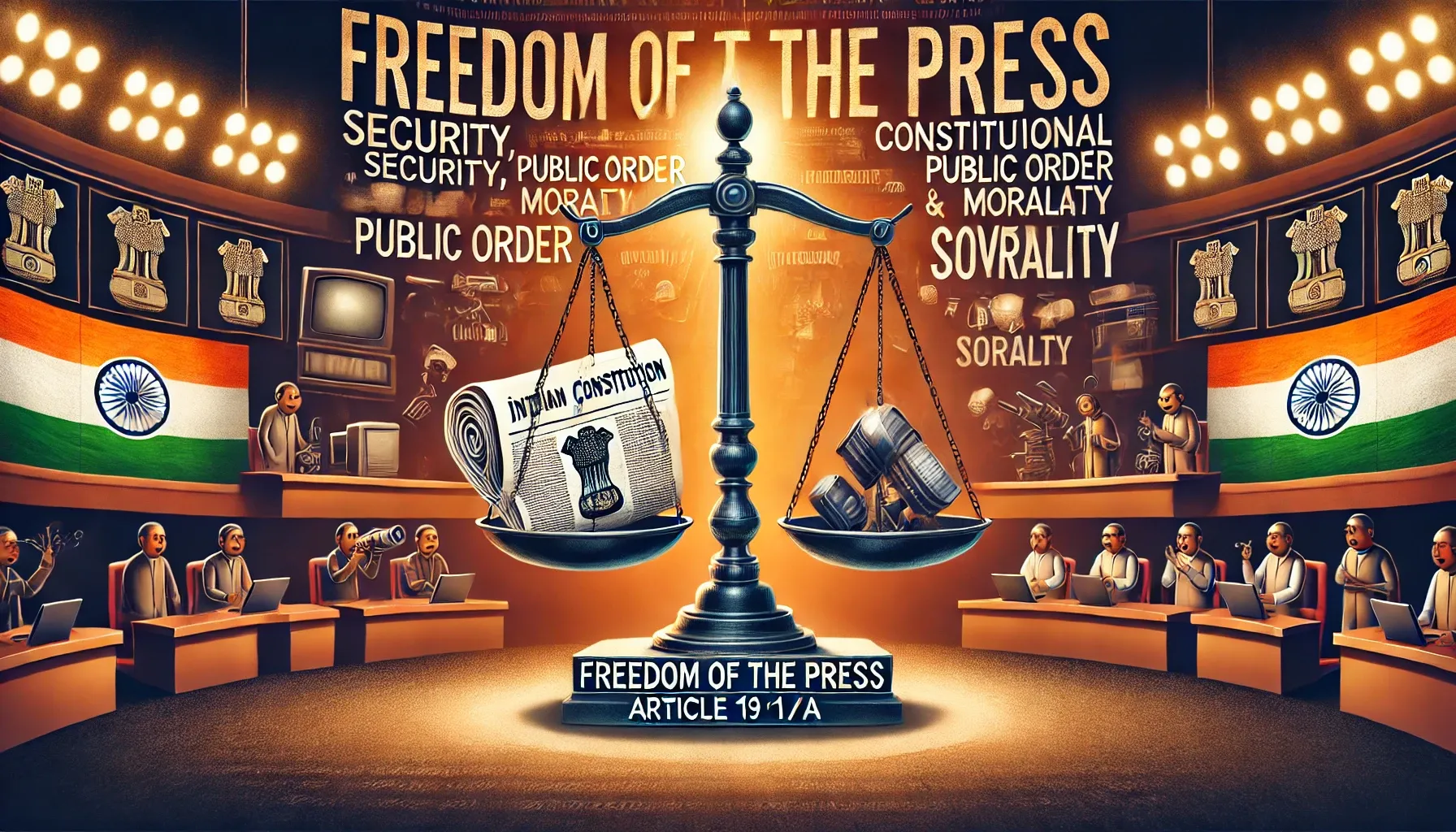
lex-o-pedia
What are the Constitutional Safeguards and Legal Frameworks for Freedom of the Press in India?
The freedom of the press in India, implicit under Article 19(1)(a) of the Constitution, is vital for democracy. While it empowers open dialogue, it is subject to reasonable restrictions under Article 19(2) to ensure public order, security, and individual rights.
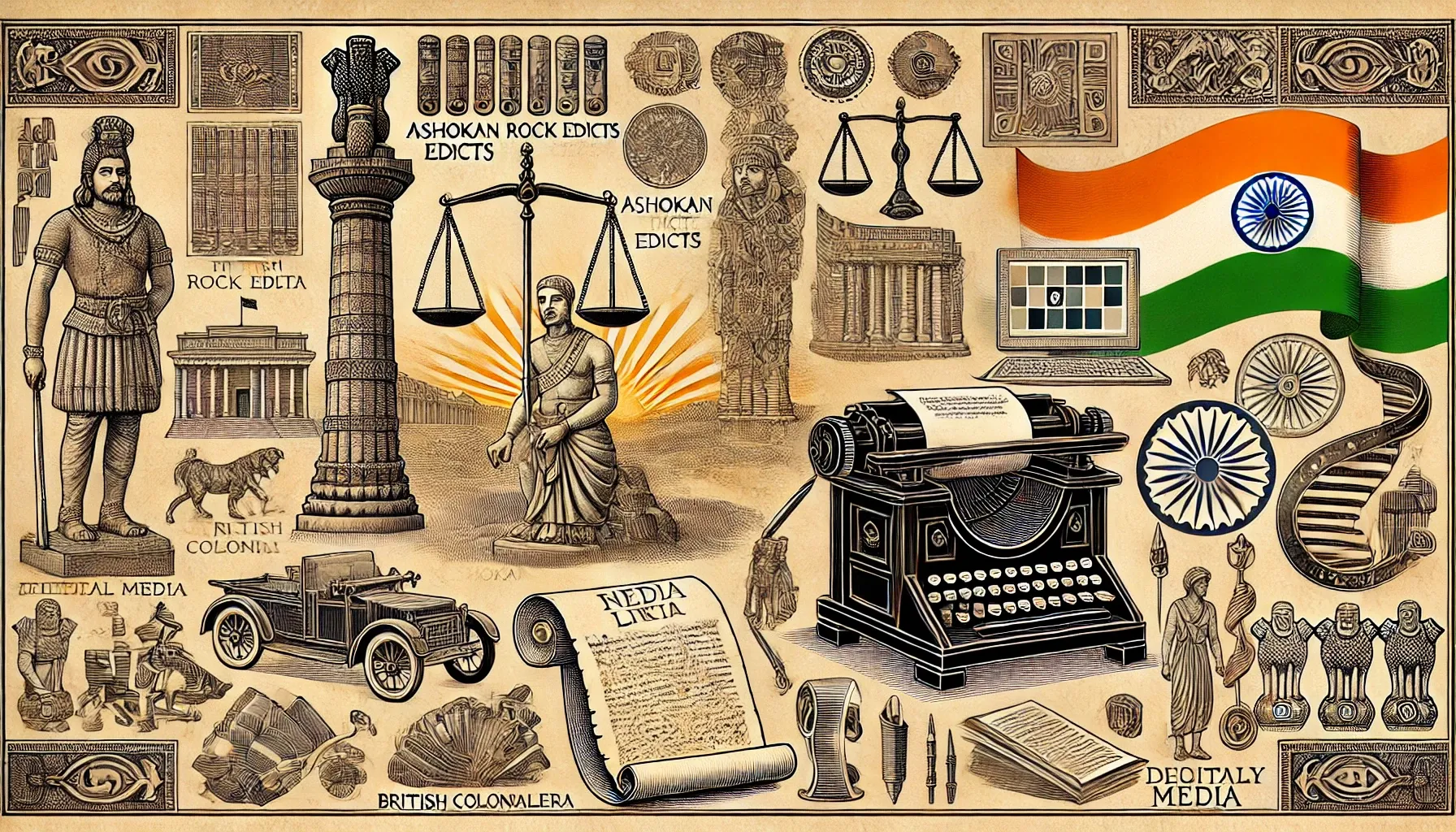
lex-o-pedia
How Has Media Law Evolved in India: A Historical and Legal Journey?
Media law in India governs the regulation of media activities, balancing freedom of expression with necessary restrictions. Its evolution spans from ancient India to the colonial era, culminating in post-independence legislation ensuring responsible media practices.
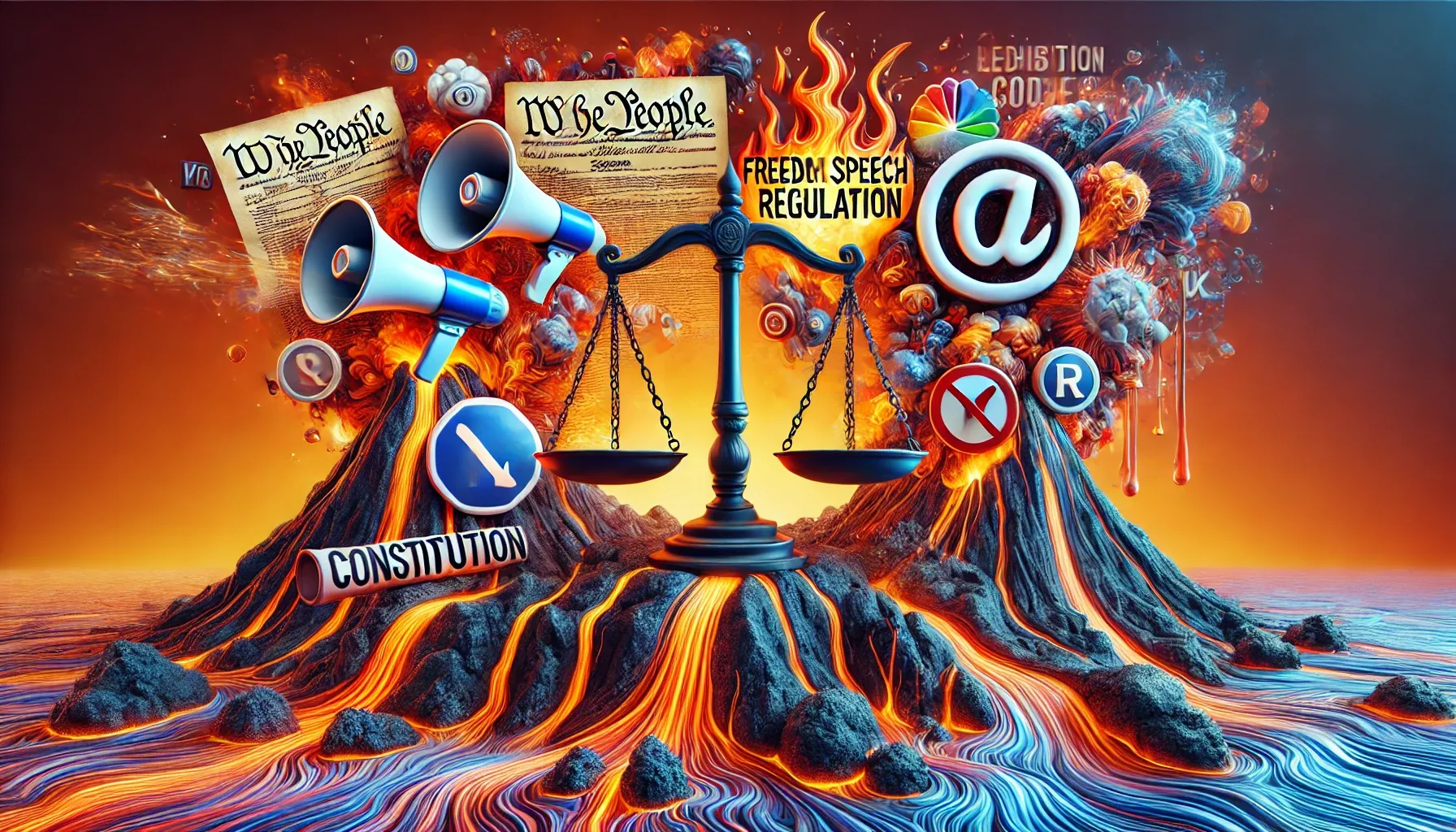
lex-o-pedia
What is the relationship between Freedom of Speech and Expression and the Right to Advertisement?
Advertising intersects with the right to freedom of speech, protected under Article 19(1)(a) of the Indian Constitution. Courts have ruled that commercial speech is fundamental, yet regulations must ensure ethical standards, consumer protection, and balanced freedoms.

lex-o-pedia
संपत्ति कानून में सशर्त हस्तांतरण क्या है?
संपत्ति कानून में सशर्त हस्तांतरण का तात्पर्य ऐसे लेनदेन से है, जो किसी शर्त की पूर्ति पर निर्भर करते हैं। शर्तें वैध, कानूनी, नैतिक और संभव होनी चाहिए। यह अवधारणा संपत्ति लेनदेन को विशिष्ट आवश्यकताओं और परिस्थितियों के अनुसार ढालने में सहायक है।
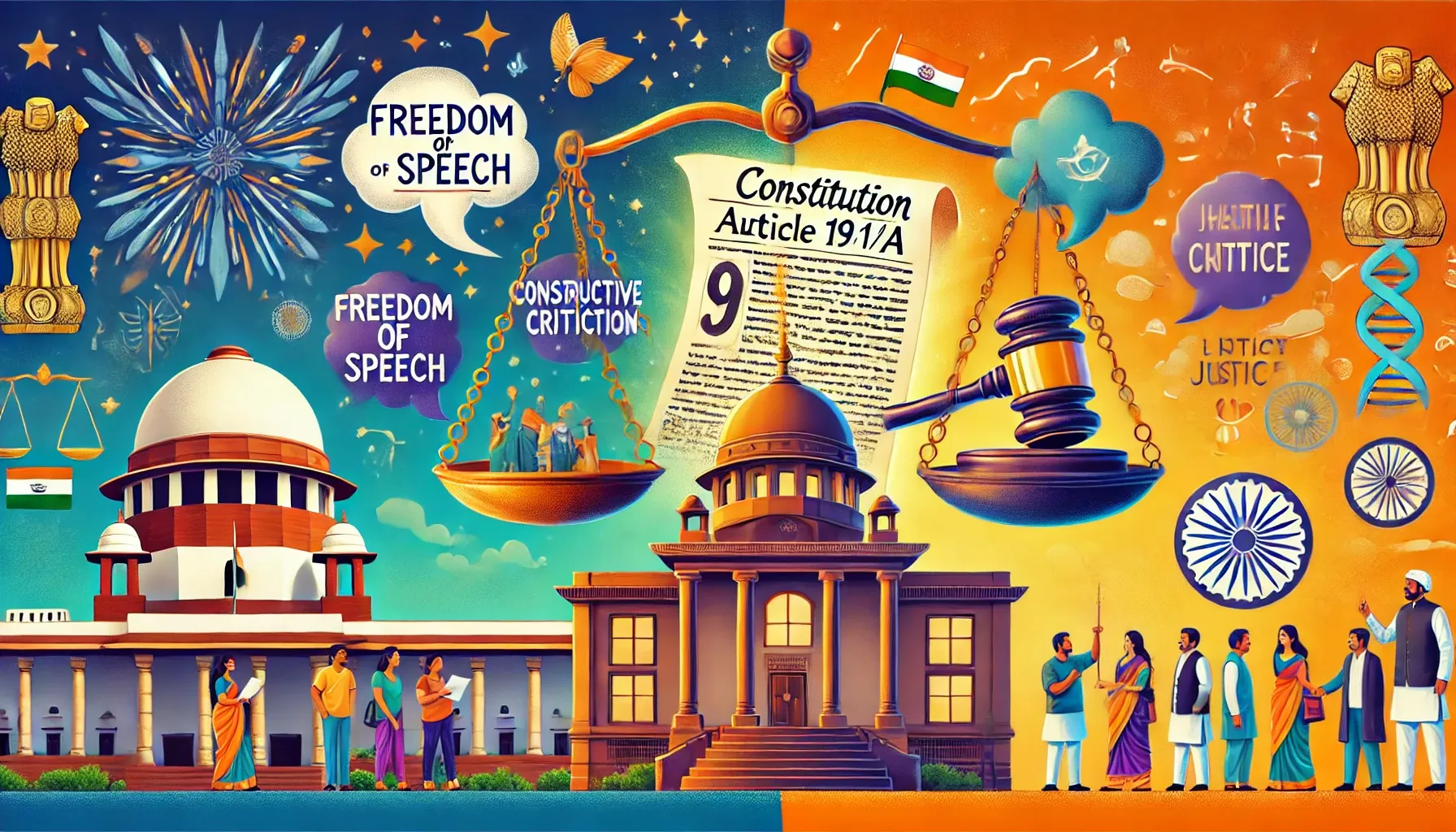
lex-o-pedia
How Can Freedom of Speech Be Balanced with Judicial Authority While Analyzing Contempt of Court in India?
This article examines the intricate balance between freedom of speech and judicial authority in India, focusing on contempt of court laws. It highlights the interplay of constitutional rights, judicial powers, and the need for reforms to align with democratic principles.

lex-o-pedia
संपत्ति हस्तांतरण अधिनियम के तहत क्या अजन्मे व्यक्ति के लाभ के लिए हस्तांतरण संभव है?
संपत्ति हस्तांतरण अधिनियम, 1882 की धारा 13 अजन्मे व्यक्ति के लाभ के लिए संपत्ति हस्तांतरण की अनुमति देती है। इसके तहत, संपत्ति में पूर्विक जीवन हित सृजित होना चाहिए, और अजन्मे व्यक्ति को पूर्ण हित केवल उसके जन्म के बाद ही प्राप्त होता है।
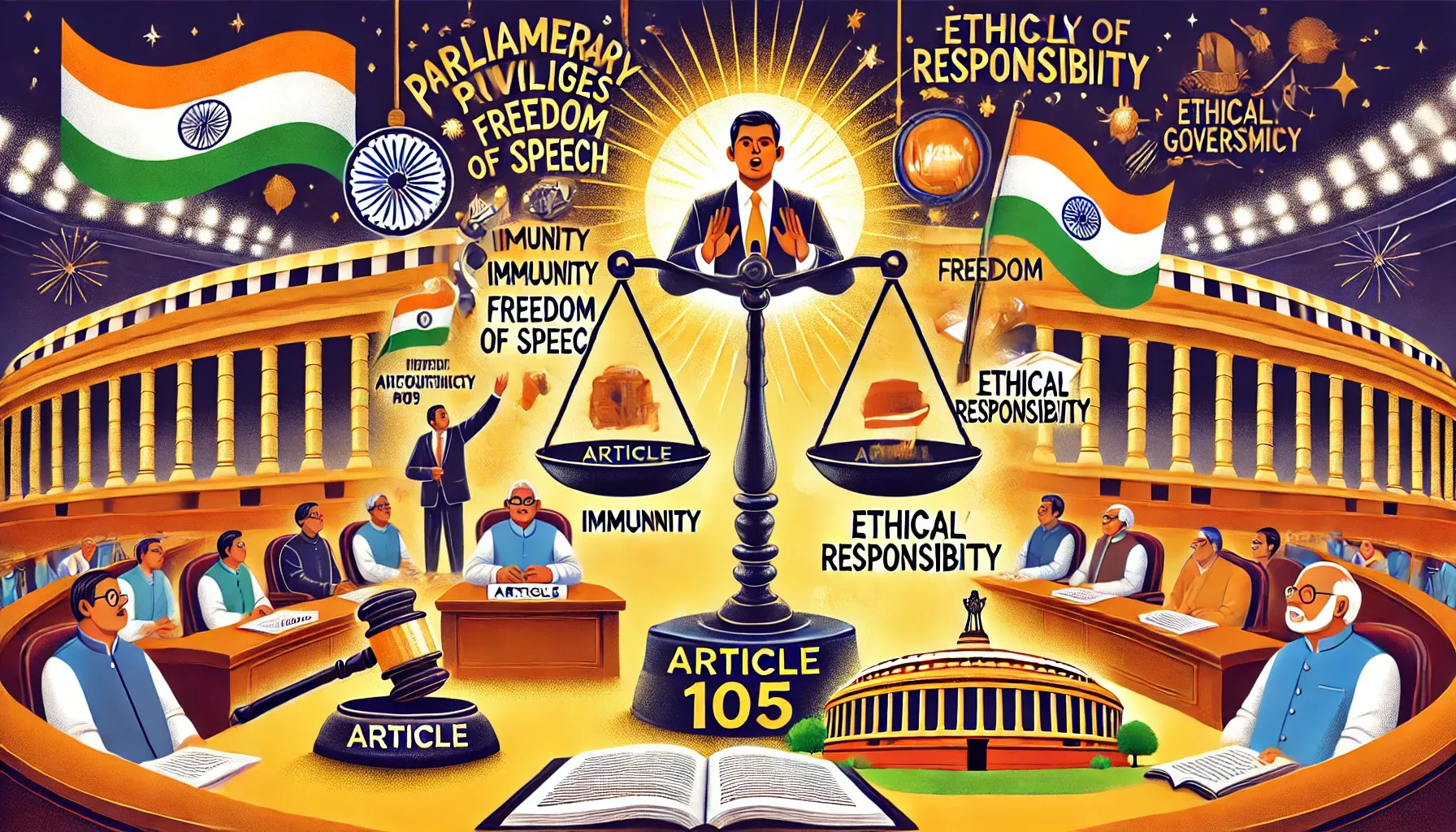
lex-o-pedia
How can freedom of speech and parliamentary privileges be balanced to uphold rights, responsibilities, and democratic integrity?
Parliamentary privileges and freedom of speech are essential to democratic governance. They ensure MPs can perform duties without undue interference. However, these rights must be balanced with accountability to prevent misuse and uphold public trust in democratic institutions.

lex-o-pedia
What is the Hot News Doctrine under Copyright Law?
The Hot News Doctrine protects time-sensitive information like breaking news or live sports updates from unauthorized use. While recognized in the U.S. under cases like NBA v. Motorola, its application in India relies on common law, facing challenges in a digital age.

lex-o-pedia
Does copyright protection apply to computer-generated works?
The evolution of copyright law now includes protection for computer-generated works, though challenges persist, especially with AI-created content. Questions about originality, human authorship, and ownership highlight the need to adapt laws to modern technological realities.
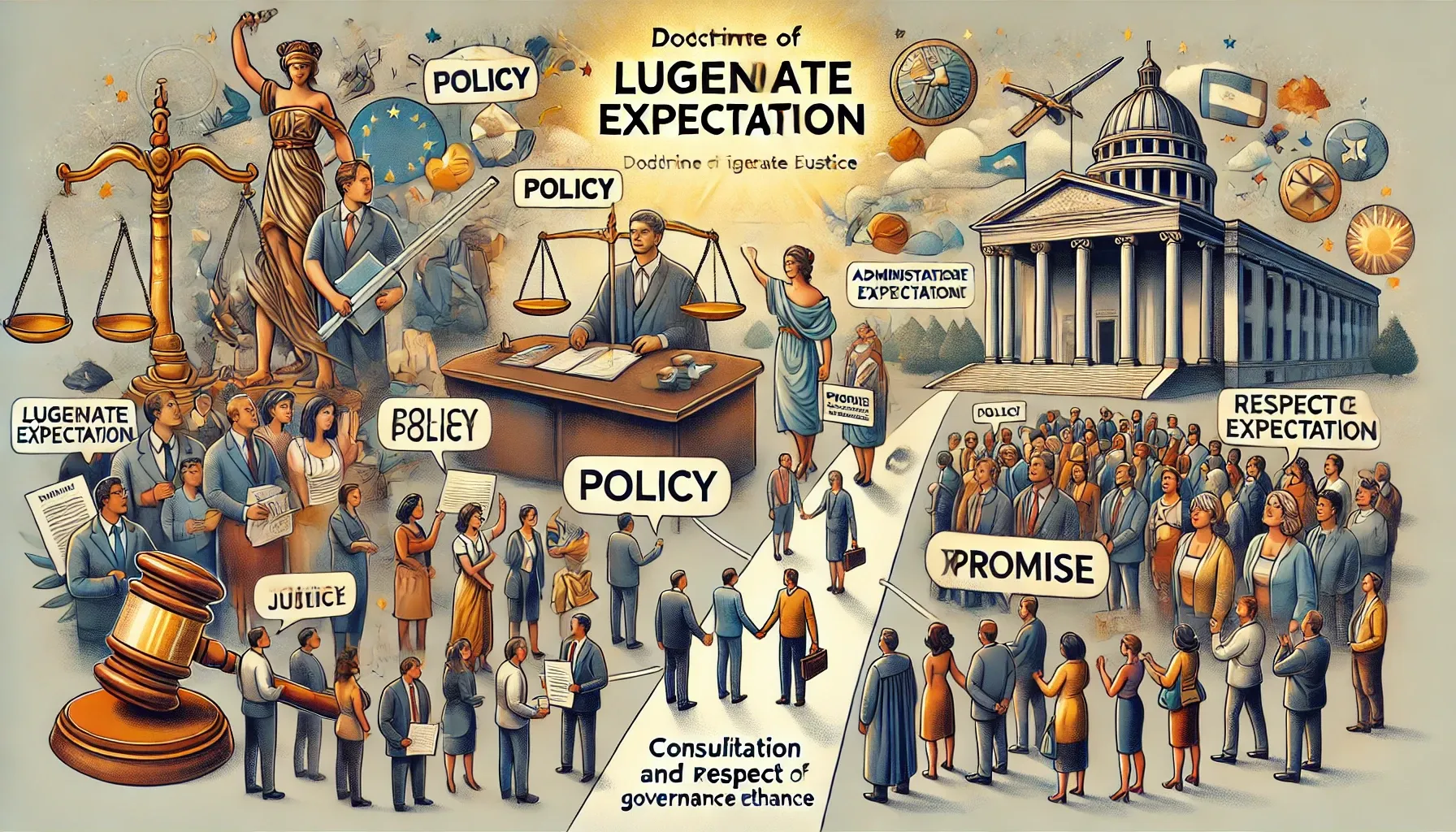
lex-o-pedia
How does the Doctrine of Legitimate Expectation balance power with fairness?
The Doctrine of Legitimate Expectation ensures fairness in governance by protecting individuals' reasonable expectations arising from administrative promises or practices. Balancing trust and accountability, it prevents arbitrary actions while respecting public interest.

lex-o-pedia
What is the significance of performer’s rights in the copyright regime?
Performers' rights under copyright law recognize the contributions of artists like actors, musicians, and dancers. These rights offer protections against unauthorized use, ensure fair compensation, and uphold moral rights, enhancing their creative and economic interests.

